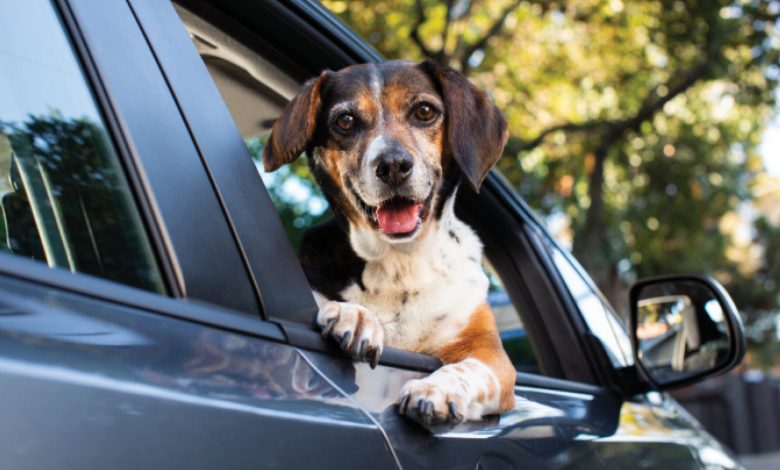Today’s Must-Know Rules of the Road – Dogster

Anna Jacoby planned to hit the road with her beloved adopted dog, Jack. But as she plotted her “workcation” to Denver, Colorado, she put on the brakes. She discovered Jack would face extra scrutiny in The Mile-High City because he’s a Pit Bull. The breed is only allowed in Denver if owners pay to have their dogs evaluated and permitted — this also applies to visitors.
“If you have a bully breed and you want to take a road trip in America, you have to check the local laws,” Anna says. “It’s pretty wild.”
Breed restrictions are one of many rules of the road to review before you travel with your pup, or you could end up in the doghouse.
“Not knowing the law is not a defense to not following the law,” says attorney Jeremy Cohen from Boston Dog Lawyers. “The law is constantly changing.”
Regulation-breaking dog owners have faced lawsuits, evictions and violations. For example, not permitting your Pit Bull in Denver could result in a $999 fine and 300 days in jail.
Why you should know the laws & your liabilities
Every state, county, city, beach or park you and your dog visit likely has its own dog laws and restrictions.
Jonathan Zacks quickly learned about the Big Apple’s leash law when he brought his newly adopted dog, Charley, out on their first walk using a retractable lead.
“I released the catch to let him run a little,” Jonathan says. “Within seconds, a neighbor was shouting at me, pointing out that local laws state that all dogs in New York City must be kept on a leash no longer than 6 feet in length. Sheepishly, I reeled him in and headed to the park, where I was informed the same by the park warden. I admit I was completely unaware.”
Not following leash laws anywhere in the United States could result in a fine and increase a dog owner’s liability risk.
When attorney Justin Wolfe, who represents dog-bite victims, gets a new case, he researches if the pooch was required to be restrained.
“If the dog, while off leash, bites and consequently injures someone, the owner who failed to follow the local leash law most likely will be held responsible for any damages the victim incurs,” Justin says.
Update Fido’s vaccinations and microchip
Ensuring your dog has the proper vaccinations protects your best friend from diseases and protects you from problems. Rabies vaccines are mandatory in most states. Keep documentation that your dog is inoculated.

“If your dog bites somebody, and you don’t have proof your dog was vaccinated, what I’ve seen happen is the victim undergoes treatment for rabies exposure,” Jeremy says. “It could cost thousands of dollars, and you might be stuck with the bill.”
Experts say to ask your veterinarian about other core vaccines like parvo, distemper and location-specific immunizations for where you’re traveling.
“There are some areas that have an increased risk of certain diseases, such as leptospirosis, Lyme disease or canine infectious respiratory disease complex,” says veterinarian Dr. Lori Teller, incoming president of the American Veterinary Medical Association. “There are vaccines available to help prevent or lessen the severity of these diseases. Visit with your veterinarian at least six weeks before you depart to ensure that your dog is adequately protected.”
Many states require a veterinarian examine your dog and issue a document certifying he’s healthy. Having your dog microchipped is also recommended. It’s implanted under the skin, so it can’t fall off like a collar or tags.
“Make sure your dog’s microchip contact information is up to date,” says Jessica Simpson, senior public policy specialist from the Humane Society of the United States (HSUS). “If you get separated from your pet in an unfamiliar area it might be key to reuniting you with them.”
Find a truly dog-friendly place to stay
Some hotels say they’re pet-friendly, but that doesn’t mean your stay will be just like home.

When Meera Watts and her Pomeranian, Bozo, checked into one hotel, it didn’t allow dogs on the bed, and she couldn’t bring his food into the room.
“Sometimes hotels go a bit overboard with their policies regarding pets. It really gave me a headache because my dog is rather used to sleeping with me on the bed, and I found the dog-food rule illogical,” Meera says.
Gigi Chow and her Yorkie, Roger Wellington, also encountered unexpected limitations.
“On several occasions, I have been surprised by the hotel policy of dogs not being allowed by themselves inside the room. If they are, they must be in a kennel or crate, which I do not travel with. Oftentimes, this is not in writing online at the time of booking,” Gigi says.
Gigi now calls the hotel and confirms the policy via email. That’s similar to Airbnb’s advice. The company cautions to check a listing’s house rules, contact the host and ask if there are pet restrictions.
If you’re staying with friends or family, find out if their condo or homeowners association has bylaws about breeds, barking or size. (Of course, circumstances are different if you have an emotional support or service dog.)
Check ahead on the rules for planes, trains & cars
It’s illegal in some states to have an unrestrained dog in the back of a pick-up truck. (And it’s just a dumb thing to do.) Some states make it illegal for a dog to be unsecured inside a vehicle. Many states ban distracted driving, and a loose dog inside the car can get you fined for distracted driving, even if the law doesn’t specifically require you to restrain your dog.

Dr. Teller recommends using a doggie seatbelt, restraint or kennel. “If the worst occurs, and you are in an automobile accident, loose dogs can become flying missiles, ricochet around the vehicle and/or be ejected through a window. This can lead to injury to humans and injury or even death to the pet,” she says.
If you’re flying, each airline decides if pets can travel in the airplane cabin unless you have a service animal. Federal regulators no longer recognizes emotional support animals as service animals on airline flights.
Smaller dogs may be able to fly in the airplane cabin. But larger dogs go in cargo — which has its share of health and safety risks to your dog. Talk to your veterinarian and airline, and thoroughly research before you book.
“Some airlines will not allow certain breeds to fly, particularly brachycephalic (dogs with smushed faces) breeds,” Dr. Teller says. “Make sure your dog is comfortable in a kennel, particularly while in motion. During the warmer parts of the year, try to avoid flying in the middle of the day. Early morning or overnight flights are better because the ambient temperature will not be as hot when your pet is moved to and from the plane.”
Many rail lines welcome dogs but have limitations on size and other restrictions. For example, Amtrak allows dogs and cats, but only up to 20 pounds for the combined weight of both the pet and carrier, and your pet must be at least 8 weeks old, non-disruptive, odorless and “require no attention during travel.” Plus, it only allows a maximum of five pets per train and limits total pet travel time to seven hours.
When it comes to traveling with your pet, it’s obvious that pre-travel research is key. And Anna was relieved she did all her homework about Denver’s Pit Bull ordinance ahead of time. “I’m a careful travel planner,” she says. “I saved myself a big hassle.”
Time to Check In
Here are some websites to help you get your dog show on the road!
For Airline Rules
Alaska Airlines: alaskaair.com/content/travel-info/policies/pets-traveling-with-pets
American Airlines: aa.com/i18n/travel-info/special-assistance/pets.jsp
Delta: delta.com/us/en/pet-travel
JetBlue: jetblue.com/help/traveling-with-pets
Southwest Airlines: southwest.com/html/customer-service/traveling-with-animals/pets/index-pol.html
United Airlines: united.com/ual/en/us/fly/travel/animals.html
State, county and city pet laws can be found on their websites.
For Train Rules
Amtrak: amtrak.com/pets
VIA Rail Canada: viarail.ca/en/plan/travelling-with-pets
Valley Transportation Authority: vta.org/faq
Safety First
Here are some safety-approved products to help keep your dog secure in the car or plane:
- G1 Kennel; $499-$899.
- Sleepypod Air; $199.99 (for dogs less than 18 pounds).
- Sherpa Forma Frame Airline Approved, Crash-Tested Pet Carrier; $55.99-$134.19.
- Clickit Terrain Plus; $126.49.
- The Pet Carrier; $225.
- Clickit Sport Plus; $103.49 (includes S-Clip and Buckle Shield).
- Passenger Travel Carrier; $225.
Source link






